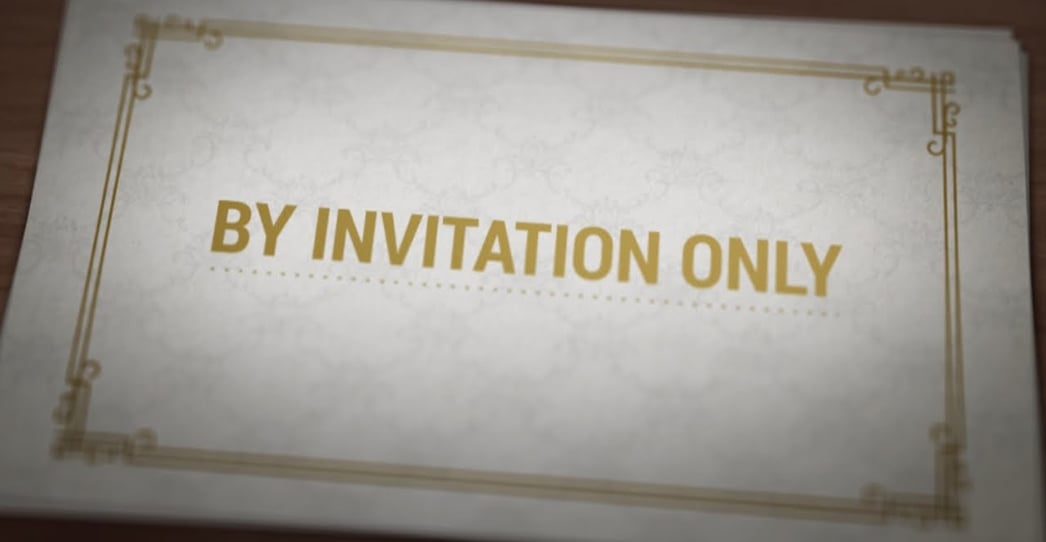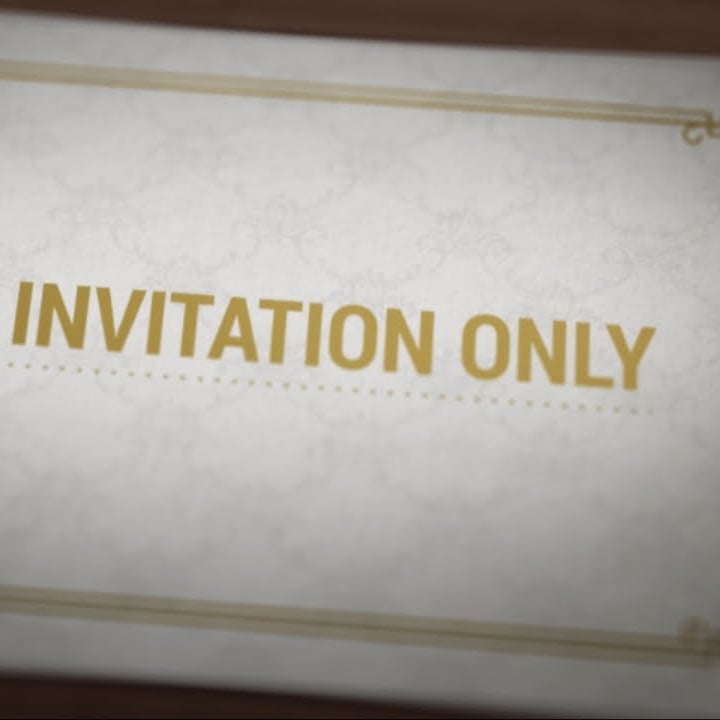Want to host an event that is strictly invite only and exclusive?

No problemo 😉 We definitely have a few solutions for you. (We also promise to never say “No problemo” again, well for as long as possible any way)
When an event is invite only, it's not only important to create hype around it by involving the invitees as early as possible but it’s also important to keep things as secretive as possible while you drum up excitement. These types of events need to engender a sense of exclusivity to them especially as attendees tend to be treated like VIPs while at the event.
Allow us a moment to show how we can assist in keeping your event on the down-low.
Quicket has all the functionality you need to keep your event private for as long as you would like (or even for its entirety, if you are so inclined). One option can be found in Settings when creating the event, and means that event will not show up on Quicket’s public-facing event listing. Super secret stuff. This functionality also allows only those who have been directly sent the event URL to access the ticket sales page. While this function offers exclusivity it doesn’t offer absolute exclusivity though, as friends can pass the URL on to one another which for such an invite-only event could result in your tickets being sold before the intended guests can get theirs.
So how do you ensure that only the intended invitees can buy tickets? There are two easy ways to do this depending on the types of event you’re running, but to start with, you can create your ticket types for both of these options on your Quicket event and set them to Hidden. This means that even if someone were to come across your ticket sales page URL, they will not see nor have access to those ticket types without an actual invitation (for a free ticket type or event) or an access code (for a paid ticket type or event).
Let’s break that down. Firstly, what is an invitation on Quicket and why is it only for free events? There is a privacy law called POPI which protects individuals from receiving unwanted spam and having their data shared with unwanted sources (no-one wants to be constantly harassed with so-called junk mail, so we think this privacy law is great). The reason why this function is only for free events is because we cannot force someone to make payment to an event to which they were invited. When an intended guest receives an invitation from Quicket on behalf of the host, the invitation states that they must RSVP to indicate whether they are attending or not along with a link they must click to collect their ticket. The Invitations features is accessible from your Quicket dashboard, but for more detailed information on how to it, read our knowledge base article here.
Access codes, on the other hand, can be used for paid events and can also be accessed from your Quicket dashboard in the Discount Codes section. You can create a discount code, set it as an access code with no discounted amount, and someone who has this code can enter it on the ticket sales page to reveal a hidden ticket type (very clandestine). These codes can be created in a bulk format but this is risky to do when you are being strict about who attends your event. If you were to create an access code with a generic title, for example “MAGIC” and set the code to be used a maximum of 20 times with one use per user, someone who was given that access code may get creative and start creating multiple Gmail accounts just to get themselves multiple tickets. It’s therefore important as well as recommended that you create each access code as a unique code so that each user has their own code which can be used only once. A combination of letters and numbers is best, so a better code to use for one person would be CY7E6C8J. If you ever need to do this, give us a shout as we’ll be able to assist you with this in a way that’s much faster than individually creating unique codes one-by-one.
Both of these tools can be set to have one use per user - so that no code or email address can be used to book more than once.
In the case of a paid event, i.e. the tickets cost money, the best option we can recommend to both keep the event private and to give access to a specific list of people is to use Quicket’s Mailchimp integration. Mailchimp is an excellent platform for customising mails and managing a database of people you want and need to email about your events. Tons of organisers use this integration when sending out a unique access code to their intended guests.
If you have a list of people you want to invite, you can create a mailing list for these people on Mailchimp, and after creating your unique access codes with Quicket, you upload these access codes to your Mailchimp database so that each person in the database has their own unique code linked to them. You can then use Mailchimp to insert these codes into the email you’re creating in an HTML/URL format so you don’t have to do so manually for each guest, and so your guests can click on a link which automatically applies the access code. Easy peasy. You could also place this link with the code on a integrated and nifty button in your email that says “Book Now”, or something smarter if you’d like, making it a cinch for your invitees to buy their tickets (which of course is exactly what you would like to do as an organiser). Remember, the fewer steps your guests have to follow, the more likely they are to buy their tickets.
Let’s take a moment to have a look at that link, and how to have the link automatically apply the code for your guests. You need to take your Ticket Sales page link which can be found in the address bar or on your Quicket dashboard, add “?dc=” to it, as well as the access code.
Here’s an example:
https://www.quicket.co.za/events/35105-test-event/#/ + “?dc=” + “CY7E6C8J” = https://www.quicket.co.za/events/35105-test-event/#/?dc=CY7E6C8J
So if each of your guests have a unique access code, the only variable in that link will be your personalised access code, in this instance “CY7E6C8J”. Your Mailchimp database needs to have a field for the Access Code, showing each person’s code (e.g. “CY7E6C8J”) next to their name etc. and then in your email, your button code will have the first section of the link in it (https://www.quicket.co.za/events/35105-test-event/#/?dc=) and you can use a merge tag (like *|CODE|*) so that Mailchimp adds in the unique access code for each user. So in HTML, the link in your button code would look something like this: https://www.quicket.co.za/events/35105-test-event/#/?dc=*|CODE|*
(We know that last bit was a little information-intense but it’s definitely going to help you in the long run so kudos to you for getting through it)
If you want a little bit more information on Mailchimp to see how it could benefit you as an organiser, read this article following a newbie event organiser’s first-setup with Mailchimp and what to do, and also check out Mailchimp’s breakdown of merge tags and how they work. Mailchimp has an excellent Knowledge Base with articles on almost any step with which you may need help.
Okay, so we now know how to send out emails to our exclusive guestlist… Are there any more key tricks that could be used? What about sharing the event link on social media? When a ticket buyer makes a purchase on an ordinary public event, Quicket offers them the chance to share it on social media platforms like Facebook, Twitter, etc. but you wouldn’t want your invite-only guest list spreading too far and wide while you’re trying to maintain some modicum of exclusivity. Under your Event Settings on Quicket, there is a setting to switch off “Third Party Sharing”. This function means that the above offer to share on social channels is no longer shown to your ticket buyers. You will also want to toggle off the “Incentivise Guests” setting as you don’t want to encourage your ticket buyers to get busy sharing your private event.
Beyond all this, it’s always good practise to create a memorable and catchy hashtag for the event - so that when all your fabulous guests are sipping elegantly on their champagne they can snap themselves in the act and hashtag your event to get the word out there and create intrigue. And yes, treat your guests as VIPs as they were specially chosen to attend your event.
Exclusive events are a unique way of introducing a new brand to a niche market or just to share great events with a specific group of people. Closed events offer you the opportunity as the host to chat to everyone who attends. So get going with those private events and feel like a VIP while you’re doing it!


